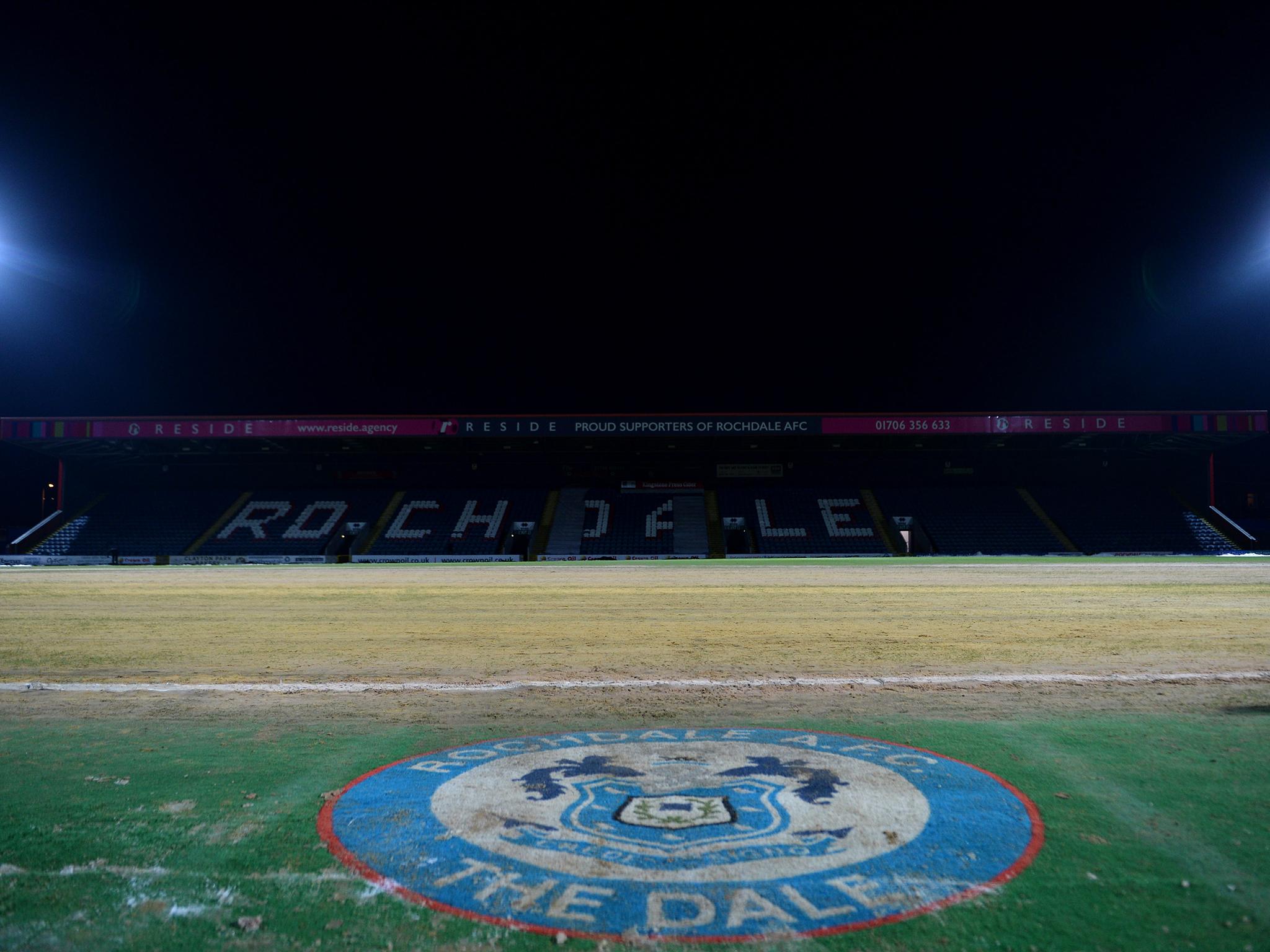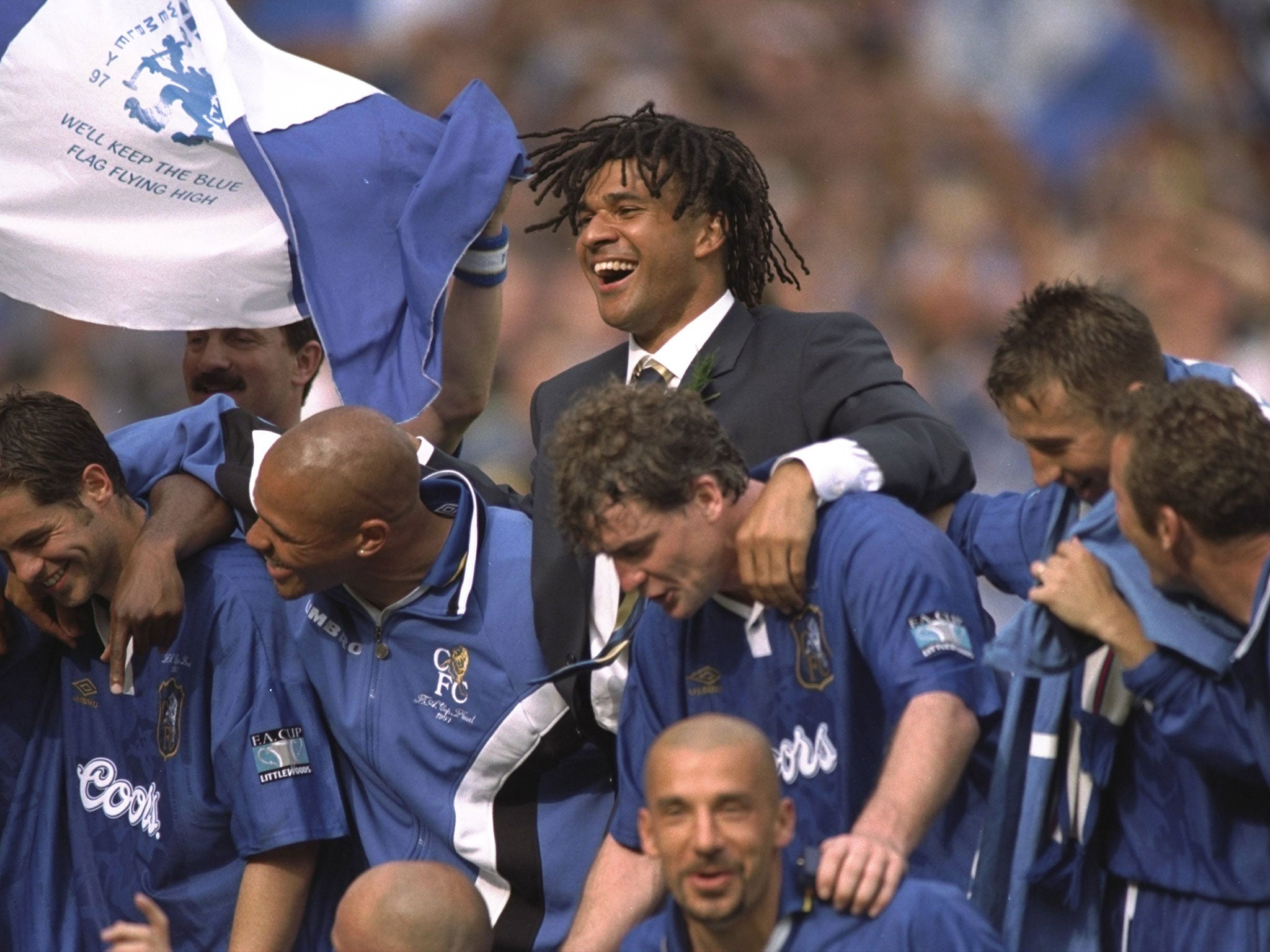Tony Collins' Rochdale success serves as a sad reminder of football's whitewashed history
Profile: Collins was the first black manager in the history of English football, leading Rochdale to the League Cup final in 1962

Your support helps us to tell the story
From reproductive rights to climate change to Big Tech, The Independent is on the ground when the story is developing. Whether it's investigating the financials of Elon Musk's pro-Trump PAC or producing our latest documentary, 'The A Word', which shines a light on the American women fighting for reproductive rights, we know how important it is to parse out the facts from the messaging.
At such a critical moment in US history, we need reporters on the ground. Your donation allows us to keep sending journalists to speak to both sides of the story.
The Independent is trusted by Americans across the entire political spectrum. And unlike many other quality news outlets, we choose not to lock Americans out of our reporting and analysis with paywalls. We believe quality journalism should be available to everyone, paid for by those who can afford it.
Your support makes all the difference.For Rochdale’s chairman, Chris Dunphy, the media round has been constant as kick-off with Tottenham nears. He has been asked again and again about the re-laid pitch at Spotland that will cost an estimated £500,000 and wipe out most of the profits that Keith Hill’s team have made in their run to the fifth round of the FA Cup.
However, whatever Dunphy says will not have the resonance of the statement Freddie Ratcliffe, one of his predecessors as Rochdale chairman, made to the press in September 1960. “We are aware that some eyebrows will be raised because of his colour but that made no difference and we sincerely hope it will make no difference in his career as a manager.”
They had appointed Tony Collins to be Rochdale’s player-manager. Nearly 60 years on it makes for a cringe-inducing read but, for the time, it was astonishingly enlightened.
Sunday will be Rochdale’s biggest game since Collins led them to the 1962 League Cup final, where they lost to Norwich City, and the first time Rochdale have made the fifth round since they faced Crystal Palace in February 1990.
It was a match recalled for the heroics of Keith Welch in the Rochdale goal, for John Salako striking the post and for Peter Ward squandering the chance to force a replay in the final moments at Selhurst Park. When that match was played Collins was still the only black manager to have been employed in the English game and he would retain this curious distinction until Keith Alexander took over at Lincoln three years later.
Collins had been born in North Kensington, not far from where the burnt-out frame of Grenfell Tower now stands. His mother, Lou Collins, was single and a teenager. His father, whose name Lou never divulged, was African.
He was brought up by his grandparents in Notting Hill, which in 1958, the year after Tony left Crystal Palace for Rochdale, would be convulsed by the race riots that formed the climax for Colin McInnes’s novel about teenage London, Absolute Beginners.
Four years later, Collins would take Rochdale, who were to finish 12th in the Fourth Division, to the League Cup final. He remains the only black British manager to have led his team out in a major cup final.
It was to prove a career cul-de-sac. Managerially, it produced just memories, especially the two-legged semi-final against Blackburn who had won the FA Cup two years before. The local press referred to Collins, who was fascinated by tactics, as “the professor of soccer know-how” and he had surprised Blackburn in the first leg at Spotland.
However, within eight minutes of the second leg at Ewood Park kicking off, Rochdale’s lead had been reduced to 3-2. Collins redeployed his centre-forward Louis Bimpson as a defender and rode out the attacks to earn a £20 bonus.
There was another reason why Collins benefited so little from his achievement. When the League Cup was launched in 1960 it had so offended the FA that the Football League’s president, Joe Richards, was told the final would not be staged at Wembley in his lifetime. Not until 1967, when Tottenham played Chelsea, did the FA give way.
When Rochdale faced Norwich in the final, it was over two legs with no television coverage. It did not resonate much beyond Lancashire and Norfolk. Peter Whyke, who was part of Collins’s team, recalled that though people still talk about the final, “only one or two newspapers sent reporters to cover it”.
When Tottenham played Burnley in the FA Cup final a month later, it became the first to be covered by the BBC in the way we would recognise today, with multiple cameras placed around Wembley with close-ups, pictures in the tunnel and a full match build-up on Grandstand.
After Collins left Rochdale in 1967, Ratcliffe was met by a delegation of players demanding his reinstatement. Collins, though, was confident of finding more work and applied for 13 managerial vacancies. He was not interviewed for any of them.
Collins thought that a coincidence. His daughter, Sarita, who wrote his biography, Football’s Master Spy, did not. Her father had kept the letters he had sent to clubs such as Watford, Peterborough, Rotherham and Chester but there appeared to have been no replies.
When asked if he was proud of the fact he was the first black manager of a league side, he said: “Not particularly. I always thought of football as being a game where you’re in one minute and out the next. I never stopped to think about it.”
Collins retreated to the back rooms, where he excelled as chief scout for Don Revie at Leeds, where he compiled the famous dossiers that were handed to the players the night before every game.
Ron Atkinson, who employed him in a similar role at Manchester United, remarked: “When he showed me the dossiers, they were so detailed that you wondered how anyone could have got through them in one evening but they were the forerunners of today’s video analysis.
“Tony had a remarkable eye for detail and for spotting a footballer and deserves to be much better known than he is.” Had Bristol City, whom he also worked for, followed his advice, Kevin Keegan would have gone to Ashton Gate rather than Anfield in 1971.

His most famous scouting mission for Atkinson came when he was asked to go to Eindhoven and give his opinion on Ruud Gullit. When he returned to Manchester he handed over a compelling report on PSV’s centre-half.
Atkinson, who had wanted Gullit in midfield at Old Trafford, thought Collins had scouted the wrong man, not realising his versatility. There was not to be a second attempt to bring Gullit to Manchester. Atkinson was replaced by Alex Ferguson with whom Collins did not get on. “I found him very hard to talk to,” Collins recalled. “He was very abrupt.”
It would take another decade for Gullit to come to England, where he would become the second black manager to take his team to a major English final. That was 21 years ago. There have been no others.
Join our commenting forum
Join thought-provoking conversations, follow other Independent readers and see their replies
Comments